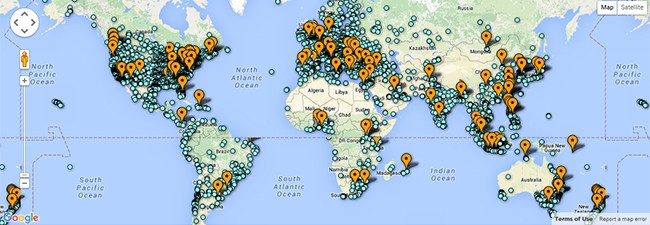
Millions of people around the world are learning or teaching an hour of code during Computer Science Education Week, which falls from 7-13 December this year.
The Hour of Code is a one-hour introduction to computer science, "designed to demystify code and show that anyone can learn the basics," according to the initiative's Web site.
Over 191 000 Hour of Code events are being hosted throughout the world this week, in more than 180 countries. South Africa will see 224 of these events.
For both event hosts and users participating at home, Hour of Code offers a number of free online tutorials through non-profit organisation Code.org, which aims to expand access to computer science and increase participation of women and learners of colour.
Accessibility
The tutorials - aimed at users of all ages over four - are compatible with all browsers and can be used on devices besides computers, such as smartphones and tablets.
Venues or schools need not offer a device for every participant, nor do users need to bring their own devices to participate, says Hour of Code.
"Research shows students learn best with pair programming, sharing a computer and working together. Encourage your students to double up," the initiative advises. Alternatively, hosts can use a projected screen from one Web-connected computer for an entire group to do an hour of code together, taking turns solving puzzles or answering questions, it suggests.
Code.org also offers downloadable tutorials for hosts and users who do not have their own Internet connection, or whose connectivity is unreliable.
No computer needed
Code.org also offers a number of "unplugged" lesson plans for teaching coding and computing skills to those without access to computers, using on-paper activities and games.
The "My Robotic Friends" activity, for example, teaches learners the connection between symbols and actions, while "Conditionals with Cards" uses decks of cards to teach learners about algorithms and conditional statements. The "Binary Baubles" activity teaches learners about representing and storing letters in binary.
"Every student should have the opportunity to learn computer science. It helps nurture problem-solving skills, logic and creativity. By starting early, students will have a foundation for success in any 21st-century career path," says Hour of Code.